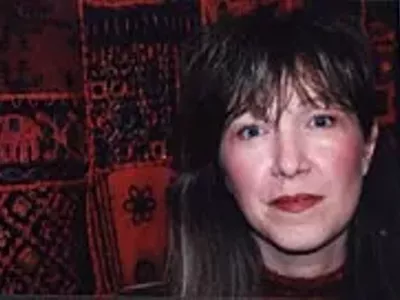After Sept. 11 are we to write about Dylan's Oscar or return to form? Elton and Eminem? D12?
And say what you'd like about unification, tribute shows or America's mallish patriotism — it's a year defined by violence. Violence is so much like cancer — I hear people say they're "happy" were winning the war. Joy is not being relieved that you've endured something you wish you'd never known in the first place. And that's where we are now. I never wanted George Bush to be president; I surely never wanted him to be a "wartime president." Just as cancer means being part of a club you were loathe to join.
As a result of my own experience I now have a significant sense of respect for death and time, which is a long way from saying I'm "happy" I no longer have leukemia.
So this year we all get that there's an absurdity to the world, to existence ... "duh" my kids would say. "Get over it," goes the phrase of the day ... no getting over this one. Emerson argued that character is fate, which has become an American ethos. What's that mean today? Cynics (nonbelievers, victims, etc.) see being born to die as God's cruel joke and become nihilistic or apathetic. Faith is a choice I guess, believing that God's will is independent of man and nature's action.
Norman Mailer argues that evil exists because God is imperfect and embattled as we are embattled. Does he intercede? How can I say, emphatically, no, even after this fall? My story says otherwise — I got cancer; people prayed for me; I prayed my goddamn ass off. My prayers were answered, after all, quite dramatically. As Shakespeare wrote, "There is providence in the fall of a sparrow." Bush has done a good job, in a very singular sense: Even his speechwriters came up with a poignant line: "Every life lost was a world unto itself." Everything matters more now, I think ... and a little less.
As far as my job, I agree with Dylan, who said this spring, "If I were born in these times I wouldn't even play music. I wouldn't listen to the radio." So writing songs in the face of the music business ("enemies by definition, music and business," wrote Lester Bangs ... cretin thieves I write) and confused audiences is in itself an act of heroism. Here's to all of us charlatans and dreamers, answering whim's call every morning ... it actually makes more sense now, in a way, to have a job with no physical structure — a job that on the surface makes no sense to the straights, but still a job that gracefully attempts to make meaning out of the glistening shards of memory and emotion. But, dude, can we make a video of it? Stewart Francke’s recordings include What We Talk of ...When We Talk and Swimming in Mercury







